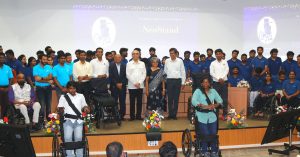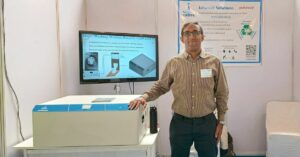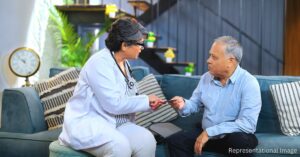Scientist Builds AI-Enabled Device to Help Diagnose Diseases in Under a Minute
Dr Tathagato Rai Dastidar explains the inspiration behind his medtech startup SigTuple, which has built an AI-enabled device to “revolutionise pathology” and help diagnose diseases earlier and with minimal human errors.
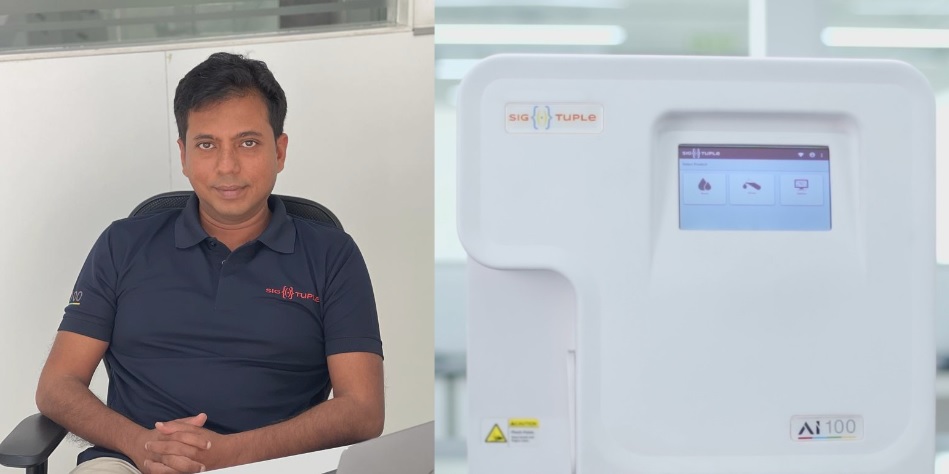
Dr Tathagato Rai Dastidar grew up in an environment where science reigned supreme, he recalls. His parents were professors at the Indian Association for the Cultivation of Science, which is the oldest research institute in India.
“So, science has been my bread and butter since early childhood. I have always been fascinated and curious about science and technology,” says Dr Dastidar (45) in conversation with The Better India.
The 22-year veteran of the tech industry, who holds 11 United States patents, is the founder of Bengaluru medtech startup SigTuple, which automates the manual microscopic review of biological samples using artificial intelligence (AI) for faster turnaround time for patients, making the lives of pathologists easier.
Dr Dastidar’s love for science and technology took him to the corridors of the famed Indian Institute of Technology (IIT), Kharagpur. There, he completed his BTech and PhD in computer science and engineering before embarking on a career building software and holding technical leadership positions for some of the premier technology companies in the world.
However, when he started his professional career back in 2000 at National Semiconductor, an American semiconductor manufacturer, tragedy struck back home.
Dr Dastidar’s father passed away the same year after his treatment for acute myeloid leukaemia was delayed due to an earlier misdiagnosis. Alongside his day job at various tech companies, for about a decade and a half, Dr Dastidar began working on the problem of how to prevent such fatal instances of medical misdiagnosis. He founded SigTuple in 2015.
SigTuple was, in part, the result of this search for a solution, and with the company, he has embarked on a mission to revolutionise pathology through robotics and advanced AI.
“At SigTuple, we are about applying artificial intelligence into an area which positively impacts human lives. Accurate and early diagnosis of disease conditions is one such way, and this cause resonated with me personally,” he says.
Mitigating the loss of human lives
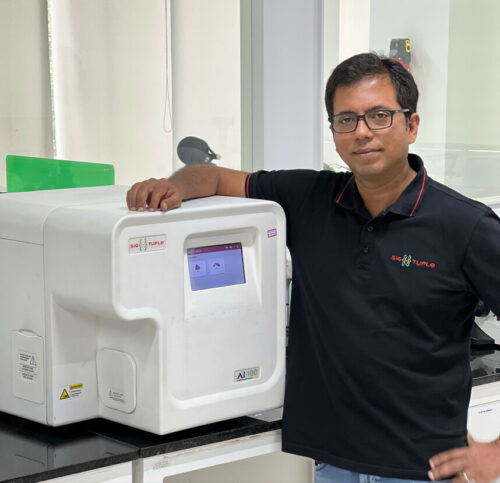
Taking a multi-disciplinary approach, SigTuple combines AI, robotics, microfluidics and cloud computing to create intelligent diagnostic solutions that make quality healthcare delivery affordable and accessible.
Here’s how Dr Dastidar explains the problem statement.
“In many cases, critical diseases go undiagnosed till it is too late. This could be because of the lack of access to quality healthcare. It could also be due to the inefficiencies in the healthcare delivery system. Whatever the cause might be, the effect is ultimately tragic — unnecessary suffering and loss of human lives. The idea behind SigTuple was to build artificial intelligence that could help early screening and diagnosis, possibly in underserved areas, which would make life better for the end patient.”
More specifically, however, he notes that there is one pathologist for a population of more than 65,000 people. With the aim of making the life of the pathologist easier and thereby improving patient outcomes, their focus lies in automating the inefficient and error prone manual microscopic review process for the most common tests — blood and urine microscopy.
Navigating the ‘biggest bottleneck’
One key device they have developed in this regard is the AI100, which offers a solution combining software and hardware components. The hardware is an automated slide scanner, capable of converting any physical specimen into digital images.
The AI platform analyses these images and provides clinical insights into the sample, which brings down slide review time for the pathologist and allows them to seamlessly work remotely or collaborate with their colleagues across geographies.
“Microscopic review of blood samples is a gold standard for diagnosis of many critical diseases. This includes something as serious as the various forms of leukaemia. This process remains predominantly manual in more than 96% laboratories globally and is thus the biggest bottleneck in terms of turnaround time for sample reporting,” explains Dr Dastidar.
“Being manual, it is also prone to errors. Most importantly, blood microscopy is by far the largest use case of the microscope in a clinical laboratory. The idea behind AI100 is to automate the microscopic review of blood samples through robotics and AI, to make the process standardised, reduce turnaround time, and improve quality of reporting,” he adds.
While the idea of AI100 originated at the time of the birth of SigTuple, Dr Dastidar and his team tried out different approaches on the hardware side before zeroing on the current design. He says his team knew that they had to build the hardware themselves, as there was no cost-effective solution available for automated digital microscopy in the market.
“Our biggest challenge was the founding team’s lack of experience with hardware design, especially hardware that requires micron level precision, as in microscopy. We had vast experience in developing artificial intelligence and data analysis tools, but hardly any to develop hardware. As a result, we made many rookie mistakes along the way, which delayed the final deployment of AI100 into the market. Those were good lessons to learn,” he notes.
AI100 was ready for beta testing starting early 2019. SigTuple deployed the beta version into many labs, and used the opportunity to gather customer feedback and smoothen out any rough edges.
COVID-19, however, dampened their commercialisation plans. They started commercial deployments of AI100 after the second wave of the pandemic subsided in late 2021.
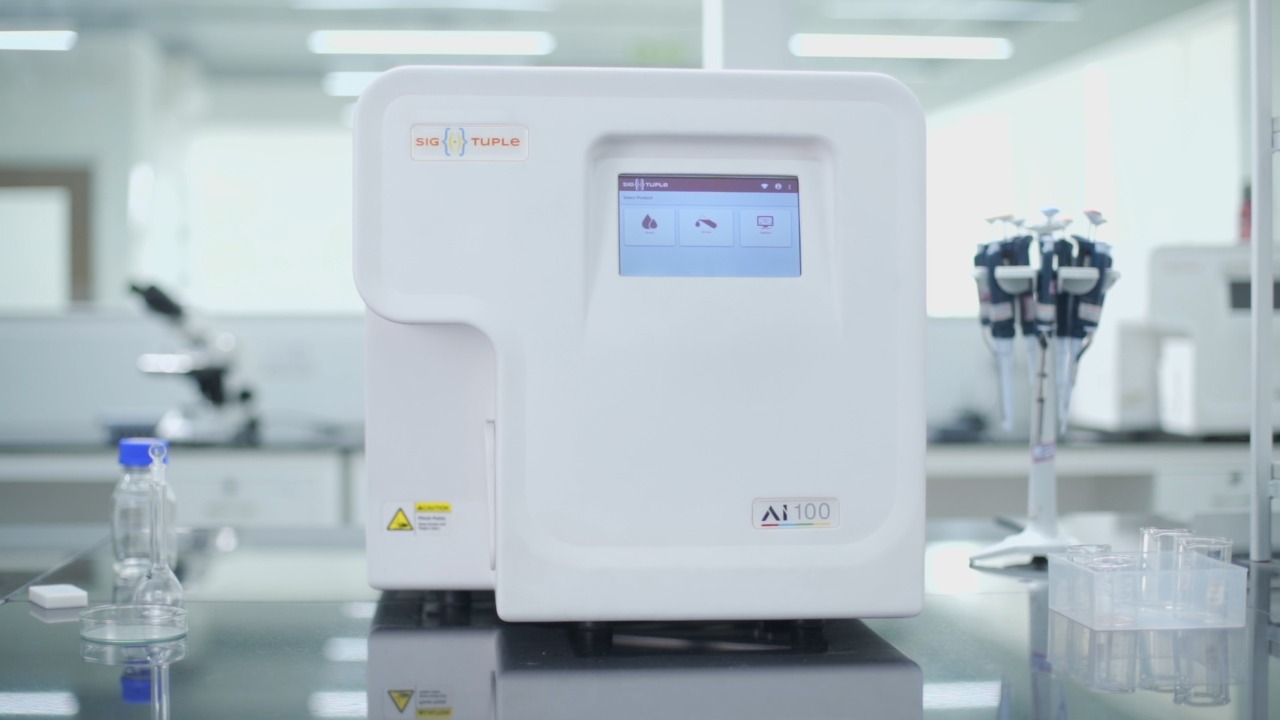
How does it work?
In normal laboratory practice, a blood sample is smeared on a glass slide and then reviewed under the microscope.
With this device, instead of a pathologist reviewing the slide under the microscope, the slide is inserted into AI100. The machine automatically captures high magnification microscopic images of the relevant portions of the slide and uploads the images to a cloud platform.
“The AI module resides on the cloud platform. It analyses the images, mimicking what a pathologist would do while reviewing it under the microscope. The result of this analysis is then presented to the pathologist on a web browser, which makes the report accessible from anywhere and anytime. The pathologist reviews the AI suggested report and then approves it.
This process helps the current workflow in many ways,” says Dr Dastidar.
First of all, the pathologist need not be in the lab to report on the sample.
“Imagine a critical patient requiring immediate attention in the dead of the night. Earlier, the pathologist had to rush to the hospital or the patient had to wait. Now, that is no longer necessary, as the pathologist can report from home, while the sample is in the laboratory where the AI100 machine is present. Further, since the AI does most of the job of the pathologist, it makes her more efficient, by reducing the review time. She can now concentrate more on the really critical patients, rather than wasting time on near normal samples,” he explains.
Finally, the AI is free from fatigue-related errors that impact human pathologists. It’s better at detecting those rarer and easy to miss abnormalities. This ultimately improves the end patient outcome. With AI-enabled automated digital microscopy, the sample review process by a pathologist, which used to take 5 to 10 minutes, has come down to 30 seconds today. Also, thanks to this technology, a pathologist can now review approximately 300 slides per day as compared to 30 slides with manual microscopic solutions, according to Dr Dastidar.
“This is how AI, robotics and cloud all come together to improve the speed and accuracy of diagnosis. Also, apart from blood, AI100 can also analyse urine samples. Urine microscopy is the second most common use of the microscope in the clinical laboratory. Soon, other and more specialised tests will be enabled on the same platform,” he adds.
Components of AI100
AI100 consists of an optical column with a microscopic lens (400X magnification), an LED illumination unit and a CMOS (complementary metal oxide semiconductor) camera.
“It has a mechanical stage used for moving the sample under the lens, and also to focus it, which operates at micron level precision. There is an electronic printed circuit board (PCB) to control the mechanical stage and the LED unit. It also contains a full-fledged compute unit consisting of an Intel processor and NVIDIA GPU,” states Dr Dastidar.
“SigTuple has the capability to assemble the hardware in house. We also have a tie-up with a certified contract manufacturer for medical devices. While many of the internal components are imported, some are locally sourced. The plastic cover and the machined components are manufactured locally,” Pranat Bhadani, President of Business Growth, SigTuple.
Improving care in Tier 2 and 3 cities
SigTuple is also focused on equipping Tier 2 and 3 cities by installing their device in pathology labs and introducing the need for advanced automated digital microscopy, which will help cope with the dearth of pathologists.
“Most laboratory chains are stunted in their ability to open up quality diagnostic centres in Tier 2 and 3 cities (and even beyond), by the inability to find a good pathologist for such labs. So, they typically operate in a hub-and-spoke model, where samples from smaller cities and towns are transported to their main centres in larger cities. This has its obvious drawbacks — increased turnaround time, sample degeneration while transport, and so on,” explains Bhadani.
Microscopy requires the physical presence of the pathologist in the lab. Most other functions in the lab can be performed digitally, with technicians at the lab running the machines.
“AI100 enables the labs to perform microscopy digitally over the internet, obviating the need to have the pathologist physically present in the lab. Given the increased efficiency of the pathologist due to the AI, the same pathologist can now look at many more samples in a day than what she could do earlier. This is how SigTuple is helping laboratories in their foray into smaller cities and towns. We count nearly all the top laboratory and hospital chains in India as our customers — HCG, Manipal, Krsnaa Diagnostics, SRL, Aarthi Scans, etc,” says Bhadani.
What is the road ahead for SigTuple? If you found our stories insightful, informative, or even just enjoyable, we invite you to consider making a voluntary payment to support the work we do at The Better India. Your contribution helps us continue producing quality content that educates, inspires, and drives positive change. Choose one of the payment options below for your contribution- By paying for the stories you value, you directly contribute to sustaining our efforts focused on making a difference in the world. Together, let’s ensure that impactful stories continue to be told and shared, enriching lives and communities alike. Thank you for your support. Here are some frequently asked questions you might find helpful to know why you are contributing?

“We will continue our journey of innovation in the medical space and come up with newer solutions which solve real clinical problems. We will also continue our journey to expand commercially, both in India and internationally,” says Dr Dastidar.
(Edited by Divya Sethu)
This story made me
-
97
-
121
-
89
-
167





